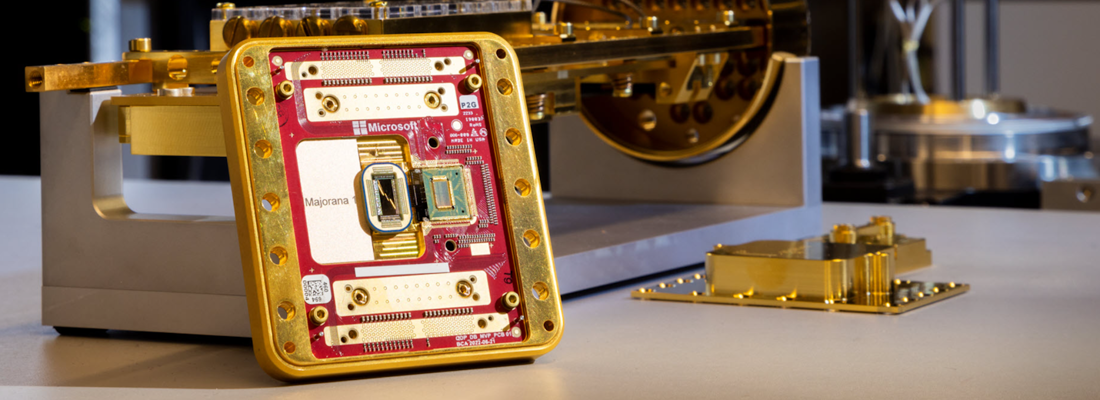Microsoft has presented Majorana 1. The quantum chip with “Topological Core” architecture should make powerful quantum computers possible "in a few years" rather than decades.
The breakthrough is based on a newly developed material. Majorana 1 is based on a so-called topoconductor, the special features of which are described in a Nature study published on Wednesday by the Microsoft Azure Quantum Team.
Topoconductor enables new state of aggregation
The topoconductor, also known as a topological superconductor, can assume a completely new state of aggregation: neither solid, liquid nor gaseous, but topological. This state had previously only been described in theory.
Microsoft has combined the semiconductor indium arsenide with aluminum, a superconductor. According to the research team, every single atom is deliberately placed in the new design. Under the influence of magnetic fields and at temperatures close to absolute zero, that's -273.15 degrees Celsius, the material develops its special properties.
Qubits from Majorana's
Analogous to the bits used by classical computers, quantum computers have qubits. However, these are quite unstable and easily disturbed, which can lead to a loss of information. Their state can also be influenced by measurement.
Microsoft makes its qubits from Majoranas, which are named after the Italian mathematician Ettore Majorana (1906-1938). According to the research team, these topological qubits are neither too small nor too large compared to other qubits and are protected against random interference on the hardware side.
Simple but powerful architecture
The newly presented architecture is relatively simple: for a qubit, aluminum nanowires are formed into an “H” with four controllable Majoranas attached. Quantum information is stored via parity, i.e. depending on whether the wire contains an even or odd number of electrons.
Microwaves are used in the new chip to measure how many electrons are present with an error tolerance of just one percent. This measurement method differs significantly from existing approaches, as the error correction is built into the hardware, so to speak.
Scalable design
The Majorana 1 chip presented today has 8 topological qubits, which could be scaled up to one million. At least one million qubits are required for quantum computers, which are expected to make valuable contributions to scientific problems in the future through precise simulations, which is now within reach, as Microsoft researcher Chetan Nayak emphasized in a press release.
With Majorana 1, the second milestone on Microsoft's roadmap to a quantum supercomputer has now been reached. The company's own research team had already produced and controlled Majoranas for the first time in 2023.
Criticism
Whether Microsoft has actually achieved a breakthrough for future quantum computers remains controversial. Critics told the Nature news service, for example, that the relevant study does not contain any direct evidence for topological qubits.
